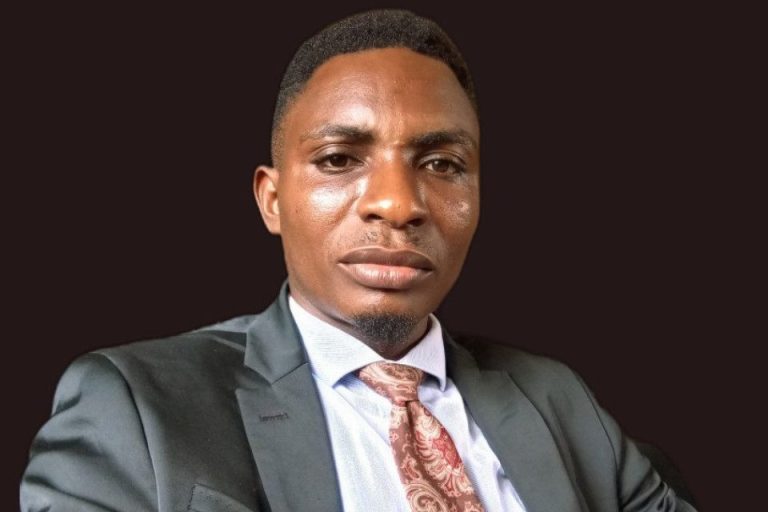 Media Rights Agenda (MRA) has launched online ”Araromi: A Paradox”, a documentary which draws attention to the plight of the Araromi community, a settlement located in a valley in Ojodu Local Council Development Area and sits in the heart of Ikeja, the capital of Lagos State but is completely neglected by the Government. The documentary is available at https://youtu.be/gAeAfk4-H6c.
Media Rights Agenda (MRA) has launched online ”Araromi: A Paradox”, a documentary which draws attention to the plight of the Araromi community, a settlement located in a valley in Ojodu Local Council Development Area and sits in the heart of Ikeja, the capital of Lagos State but is completely neglected by the Government. The documentary is available at https://youtu.be/gAeAfk4-H6c.
The launch featured a tweet chat that discussed the role the Freedom of Information (FOI) Act plays in accessing public service delivery, using the hashtags #Araromi #FOI4ComDev.
The Panellists which comprised of MRA’s Staff, included, the Executive Director, Edetaen Ojo; Programme Director, Ayoade Longe; Administrative Manager, Mrs.BunmiBamiselu; Programme Officer, John Gbadamosi; and Acting, Head, Legal Department, Ms MorisolaAlaba, the Tweet chat was moderated by MRA Communications Officer, IdowuAdewale.
During the tweets session, Mr. Adewale took a turn in asking the panellists various questions around the documentary and the relevance of using the FOI Act to access public service delivery.
Responding to question:“How did an organisation like Media Rights Agenda come about making a documentary on Araromi? Why is this important for you? Mr. Gbadamosisaid “Araromi” which ironically, means “I am comfortable” paints a glaring picture of abject neglect in the midst of opulence, adding, “It tells a story of the pitiable situation of a people who are far from comfortable and are deprived of government services in the form of basic social amenities.”
He pointed that “despite taxing themselves over the years to provide basic amenities in their community, their efforts have made little difference given the level of poverty, which is evidence that they are living in hell here on earth.”
Mrs.Bamiselu, on her part, gave an account of how MRA became involved in the community’s plight saying, “being neighbours to us, we felt the need to lend a helping hand, on a visit to get a better view of the settlement and meet with its leaders, it was discovered that there was no visible government presence in the community,” she pointed out.
She added that, despite the fact that residents of the community pay taxes and utility bills as well as other fees charged to them, they get no service in return.
“For decades, residents of the Araromi community have basically provided for themselves everything necessary for them to live and survive in the community” Bunmi noted.
According to the Administrative Manager, MRA decided to explore ways to bring government closer to them by drawing the attention of the relevant agencies of the Lagos State Government to their situation.
Mr Longe, while responding to the purpose of the documentary particularly in the context of the work MRA does said it highlights the interventions to ensure that residents of the Araromi community who are citizens of Nigeria are given a sense of belonging and able to enjoy access to information and engage with government to advance their socio-economic rights.
Relying on the Freedom of Information Act, 2011, he said, MRA sent requests for information to five Lagos State ministries and agencies to ask for their plans to provide certain essential social services and amenities in the community.
He disclosed that MRA wrote to Lagos Ministry of Health,Lagos State Primary Health Care Board, Ojodu Local Council Development Area, Lagos Water Corporation and Ministry of Works and Infrastructure.
According to him, the requested information included details and copies of plans put in place by the Ministry of Health and the Lagos State Primary Health Care Board to provide the Araromi community with health care services, among other amenities among others, taking into consideration their peculiar needs and circumstances; reasons why water supply was not extended to the Araromi Community as well as details of any plans by Lagos Water Corporation to providing pipe-borne water to the Community and the adjourning areas; amounts budgeted each year from 2011 to 2016 for the provision and/or maintenance of road(s) for the Community and copies of the relevant pages of the annual budgets.
Mr. Longe disclosed that of the five agencies that the FOI requests were sent, Lagos State Water Corporation and Ministry of Works and Infrastructure responded and provided some information while the others ignored the requests for information.
In Lagos State Water Corporation’s response, it said the peculiar topography of Araromi, being located in a gully divided by a storm canal and prone to flooding, makes it difficult to access. It also claimed to be unable to meet the water demand in Lagos State.
He, however, added: “One baffling statement in Lagos Water Corporation response was that from December 2015 to September 2016 it collected N1,341,200 from the community for water bills. The amount paid in 2015 was N543,300 while in 2016 it was N797,900.”
Ms Alaba shared some her experiences on how she was involved in the project that resulted in the documentary, nothing that, it was in the context of ensuring effective implementation of the FOI Act and making sure that government works for the people that she, on-behalf of MRA, was involved in the legal efforts to get some Lagos State agencies to obey the Law.
She said: “The remedy in the FOI Act for denial of access to information is for the applicant to go to court for a review of the refusal. Since enforcement of the Act is built entirely on judicial mechanisms, lawyers are naturally at the heart of ensuring compliance.”
“MRA believes in the vigorous enforcement of the FOI Act because there is a real risk of impunity developing in the implementation of the Act if cases of wrongful denial of access to information are not routinely and aggressively challenged in court.” She noted.
Morisola added that, under the Rules of Professional Conduct for Legal Practitioners, lawyers have a duty to ensure that everyone obeys the Law. To her, this means that lawyers must use all the resources at their disposal to ensure that the Law, including the FOI Act, is obeyed.
MRA proceeded to sue the Lagos State MDAs which failed to respond to the information requested for as stipulated under the FOI Act, Morisolaadded.
The full rulings of the cases MRA’s interventions on behalf of the Araromi community are captured on pages 201, 202, 213 and 256 of MRA publication titled “A mixed Bag of Fortunes: Compilation of Rulings and Judgments in FOI Cases in Nigeria (2012-2018)” published with support from the Open Society Initiative for West Africa (OSIWA)and available here https://bit.ly/3aADE24.
Concluding the discussion, Mr. Ojo, while responding to his view about the plight of the Araromi Community and suggesting possible ways in responding to situations like this, said “there is no doubt that the story of the Araromi community is one of government neglect of citizens and cruelty towards the people that the government ought to serve and protect.
“Araromi is one of the worst examples of governmental neglect of citizens while it uses State power to compel the neglected citizens to pay for services which the government does not provide and has no plan or intention of providing.”
Furthermore, he pointed that if a non-government entity did what the Lagos State government is doing, forcing residents of Araromi to pay for services not being provided by the Government, its actions would most likely be described in very unflattering terms, such as “extortion” or “armed robbery”.
He added that it is unfortunate that because Nigerians have experienced decades of misrule and neglect by various governments, most them have come to accept as normal the fact that government almost always never acts in their best interests.
He said: “We must reject this Nigerian reality where governments are unresponsive to citizens without any consequence and insist that governmental action should always be guided by a high degree of responsibility, integrity, equity, justice and fairness.”
He pointed out that obviously there are numerous neglected and oppressed communities like Araromi all over Nigeria but noted that it is particularly sad that situations like this are being normalized advising that Nigerians must resolve to reverse course on this abnormality.
Mr Ojo called on Nigerians to now seriously ask if those who came to power pledging to govern in accordance with the Constitution can continue to lay claim to being a Government when they no longer serve their primary purpose of ensuring the security and welfare of the people.
Bringing the tweet session to an end, he said all stakeholders have to come together to have more conversation like this so that there can be effective ways of making government work for the people and not have politicians and civil servants lord it over the people.





